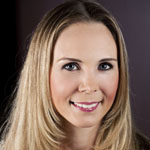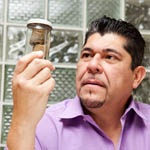When Hector Tundidor, Jr. was in college, he thrived in an accounting class feared by all of his classmates. Early on, he understood the link between accounting and a well-rounded business, so it’s no surprise that he would eventually become the Miami-office managing partner and Florida transaction advisory services leader for Ernst & Young LLP, one of the “Big Four” accounting firms in the country. Here, Tundidor chats with HE about the unexpected path that got him to where he is today.
What do you consider your “big break” or the moment your career really made an important shift?
In 1997, I was approached to be part of a group developing a transaction services practice focused on US private-equity clients wanting to invest in Latin America. It was the first of its kind and very pioneering, but I had no idea whether or not it would be successful. I remember talking to my fiancé at the time—who is now my wife—and telling her that my life was about to change in a big way and I would be required to travel often and she told me to go for it. It was successful and, a couple of years later, an opportunity came up with Ernst & Young to do the same thing. I was the third person hired into this new practice and it has been amazing to watch this practice grow into what it is today.
Executive Timeline
The Career of Hector Tundidor, Jr.
1992
Receives bachelor of accounting degree from Florida International University.
1997
Focuses on a transaction advisory services (TAS) career track.
2003
Becomes partner at Ernst & Young LLP.
2005
Is elected president of the Cuban-American CPA Association.
2010
Is named Americas TAS emerging services-development leader.
2011
Serves as Miami office managing partner & Florida transactions advisory services leader.
2011
Is inducted into Miami-Dade College Hall of Fame.
What past experiences, work-related or otherwise, do you believe truly prepared you for your current role?
The lessons I learned from my parents prepared me because my parents have always been my biggest influences and greatest role models. My parents gave me everything I have and I earned the rest through hard work. They truly laid the foundation because I heard how they struggled when they first came to the US from Cuba in the 1960s, but I saw how they persevered. They both had incredible work ethics and worked in factories until they could open their own business. That work ethic and can-do attitude was passed on to me. I was taught to believe that if you worked hard enough and worked smart, you truly could accomplish anything. These beliefs are the core of who I am as a person.
Have your priorities shifted since becoming partner?
A lot changes when you take on new roles, but what hasn’t changed is my focus on what I call the three pillars: quality, people, and growth. There is no typical day for me because the percentage I need to focus on each pillar changes daily, but if I bring my A-game to each pillar, we will achieve and maintain market leadership.
What attributes or characteristics do you believe are necessary to be successful in the accounting industry?
The drive to succeed will get you the gold medal. Some skills come with the price of admission, but that drive and passion; the ability to set a goal and work hard until you perfect your skills and achieve that goal will get you the gold medal. It’s not that the others aren’t great athletes; it’s just that it takes a driven person with a specific vision to be very successful.
You oversee 400 employees. Was leadership something that came easily to you?
It took some getting used to. There are natural leaders, but there are those who can become leaders. They may not have been born with certain instincts, but they can be taught or developed. I saw leadership all around me in my home and in my schools, but I didn’t see it as leadership; I was just used to seeing outstanding people do outstanding things.
Why do you think you’ve been successful in the accounting industry?
My listening skills, though I’m always trying to improve them and do better. You have to make adjustments on the fly and be flexible. You have to know what to focus on and what not to focus on and sometimes that’s harder than you think. You have to have an understanding of what’s in your control and what’s not. You have to have respect for others roles. I’m very privileged to be in the role that I’m in. I get to learn from others every day.

